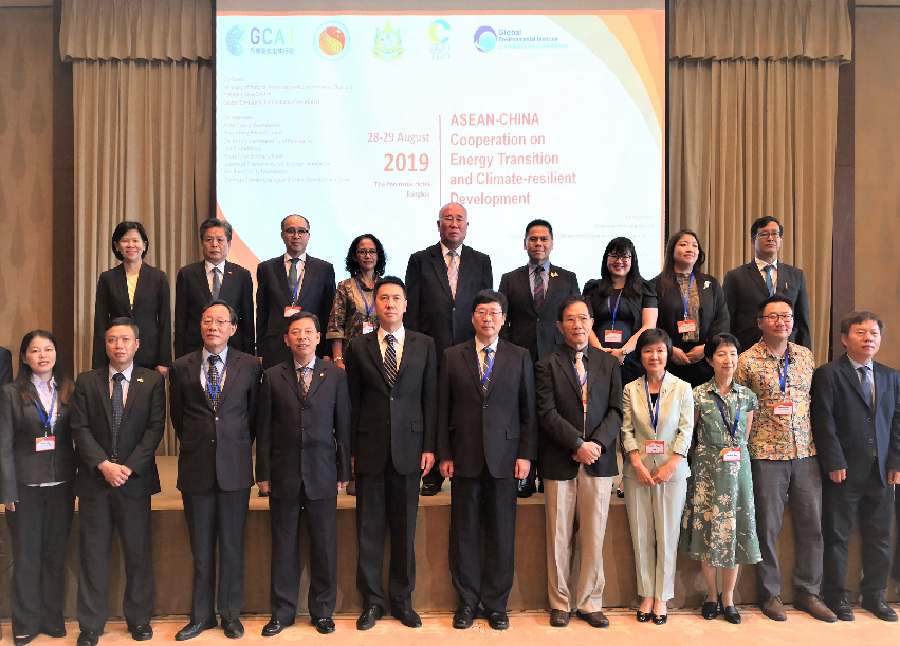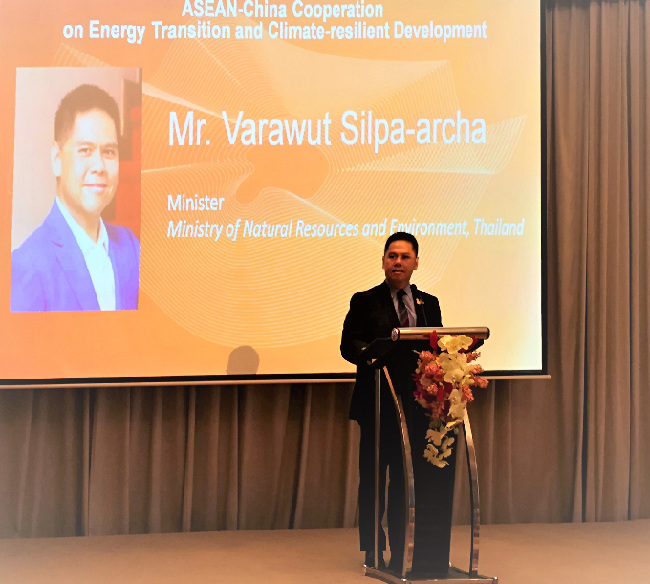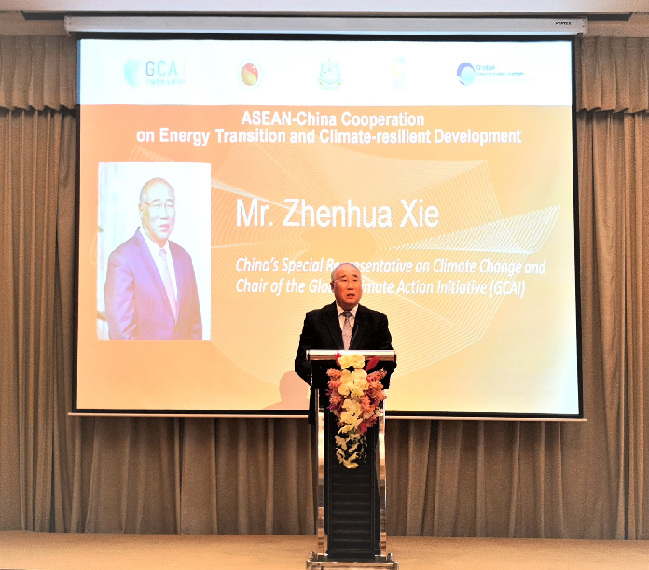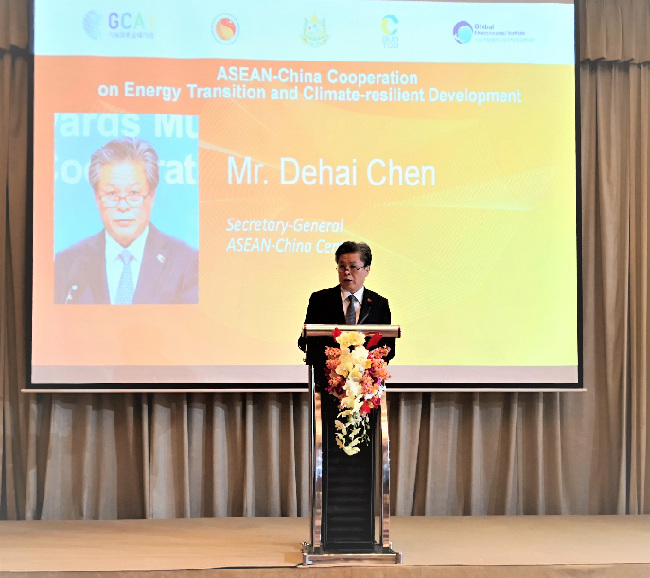
From 28 to 29 August 2019, the Ministry of Natural Resources and Environment of Thailand, in collaboration with the ASEAN-China Centre (ACC) and the Global Climate Action Initiative (GCAI), jointly convened the ASEAN-China Regional Cooperation Conference on Energy Transition and Climate-resilient Development in Bangkok, Thailand. Around 100 people, including Mr. Varawut Slipa-archa, Natural Resources and Environment Minister of Thailand, Mr. Xie Zhenhua, China’s Special Representative on Climate Change, Mr. Chen Dehai, ACC Secretary-General and Mr. Li Haiyan, GCAI Secretary-General, and government officials, experts, entrepreneurs and representatives of NGOs from AMS, the U.S., the U.K. and Austria attended the conference.

Themed with “ASEAN-China Energy Transition and Climate-resilience Development”, representatives from China and AMS elaborated on actions taken to address climate change and achievements in promoting low-carbon energy transition. Participants discussed such topics as policy formulation, technology financing, renewable energy utilization and south-south cooperation, which is conducive to promoting mutual learning and practical cooperation in the areas of climate change and sustainable development.

Minister Varawut Slipa-archa, warmly congratulated the opening of the conference and stated that, along with the industrialization of human society, the importance of environmental issues on the development agenda of all countries, especially the developing countries, has risen to an unprecedented level. It is imperative to change the current development model of “high production and high consumption” . This conference provides a platform for relevant parties to share experience and seek cooperation. He hoped that China, ASEAN and relevant parties would work together to address climate change and promote economic and social development.

Mr. Xie Zhenhua stated that the all countries should take concrete actions to do a good job in implementing the Paris Agreement, which has laid the guidelines for the global actions against climate change. As the UN Climate Action Summit is to be held in New York the following month, he sincerely hoped that ASEAN and China could join hands and send positive signals to the world with morality and synergized actions. He made a brief introduction on China’s efforts in energy-saving and emission-reduction, supply-side reform, the measures and achievements in implementing the Paris Agreement and nationally determined contributions (NDCs), stressing that China is mobilizing all social forces to achieve green, low-carbon and sustainable development. As developing countries, China and AMS are faced with similar environmental challenges and great cooperation potential is to be tapped into. China is willing to conduct policy-dialogue and practical cooperation, and share best practices with AMS countries to jointly set a good example for regional cooperation against climate change and insert new driving force into China-ASEAN relations.
Secretary-General Chen Dehai stated that the Earth is the only home for mankind. To strike a balance between the economic development and environmental protection is a common task for all countries. As Chinese President Xi Jinping said, the rise or fall of a civilization is closely tied to its relationship with nature.. People in the region have to shift from the old development path of “high depletion, high input, high pollution and high consumption” to the sustainable development of green economy. People shall advocate and promote a simpler, greener and low-carbon lifestyle and foster a culture of living green and living healthy. We should foster a sense of community with a shared future for mankind. Adhering to the principle of “common but differentiated responsibilities”, both developed and developing countries should shoulder their respective responsibilities and make concerted efforts to tackle the climate-related problems so as to achieve the sustainable development of human society.
It is widely agreed that achieving coordinated and sustainable economic and environmental development is a common task confronted by all countries in the world. Developing countries should strengthen their own capacity building and seek south-south cooperation, and all countries should work together to implement the Paris Agreement and achieve the UN Sustainable Development Goals 2030. ASEAN-China relations have entered a new stage of all-round development, and with similar stages of social development, cooperation in the field of climate change is in the process of developing and has huge potential. Green development and green BRI building are in the interests of all parties and will become a new highlight of ASEAN-China cooperation .